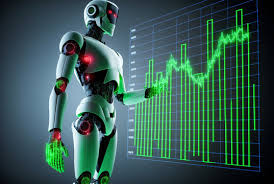In the ever-evolving landscape of financial markets, technological advancements have consistently reshaped the way trading is conducted. Among the latest innovations capturing the attention of traders worldwide is the emergence of forex robot. These automated systems, powered by complex algorithms, are designed to execute trades on behalf of traders, promising efficiency, precision, and the potential for enhanced returns. As these robots gain prominence, it begs the question: What exactly are Forex robots, and what do they mean for the future of trading?
Understanding Forex Robots
Forex robots, also known as Expert Advisors (EAs), are software programs engineered to analyze market data, identify trading opportunities, and automatically execute trades within the foreign exchange (Forex) market. These algorithms are built on predefined rules and parameters, allowing them to operate without human intervention once activated.
The functionality of Forex robots varies, with some designed to execute simple tasks such as executing trades based on specific indicators, while others boast more sophisticated features like machine learning and artificial intelligence to adapt to changing market conditions.
Advantages of Forex Robots
- 24/7 Trading: Unlike human traders who are bound by time constraints, Forex robots can operate around the clock, taking advantage of opportunities in global markets irrespective of time zones.
- Elimination of Emotions: Emotions such as fear and greed can often cloud human judgment, leading to impulsive decisions. Forex robots, devoid of emotions, stick to predefined criteria, ensuring disciplined trading strategies are consistently followed.
- Backtesting and Optimization: Forex robots allow traders to backtest their strategies using historical data, enabling them to fine-tune their algorithms for optimal performance in various market conditions.
- Increased Efficiency: With the ability to execute trades instantaneously and simultaneously across multiple currency pairs, Forex robots offer unmatched speed and efficiency compared to manual trading.
- Risk Management: Many Forex robots come equipped with built-in risk management features, allowing traders to set parameters for stop-loss orders, trailing stops, and position sizing to mitigate potential losses.
Challenges and Considerations
While Forex robots offer compelling advantages, they are not without limitations and considerations:
- Market Volatility: Rapid changes in market conditions, especially during periods of high volatility, can challenge the effectiveness of Forex robots, as some algorithms may struggle to adapt quickly enough.
- Over-Optimization: Excessive backtesting and optimization can lead to overfitting, where algorithms perform exceptionally well on historical data but fail to generalize to live market conditions.
- Technical Failures: Like any software, Forex robots are susceptible to technical glitches and connectivity issues, which can disrupt trading operations and potentially lead to losses.
- Lack of Intuition: While Forex robots excel at executing predefined strategies, they lack the intuition and subjective analysis that human traders bring to the table, particularly in interpreting news events and fundamental analysis.
The Future Outlook
Despite the challenges, the future of Forex robots appears promising. Rapid advancements in technology, including machine learning and artificial intelligence, are likely to enhance the capabilities of these automated systems further. Moreover, as the Forex market continues to attract a diverse array of participants, from retail traders to institutional investors, the demand for efficient and scalable trading solutions is expected to grow.
Additionally, the democratization of algorithmic trading through accessible platforms and APIs (Application Programming Interfaces) has enabled traders of all skill levels to develop and deploy their Forex robots, further fueling innovation and adoption in the space.
In conclusion, while Forex robots represent a significant evolution in trading technology, they are not a panacea for success. Effective implementation requires a deep understanding of market dynamics, robust risk management practices, and ongoing monitoring and adjustment. As traders navigate the complexities of financial markets, Forex robots stand poised to play an increasingly integral role in shaping the future of trading.


